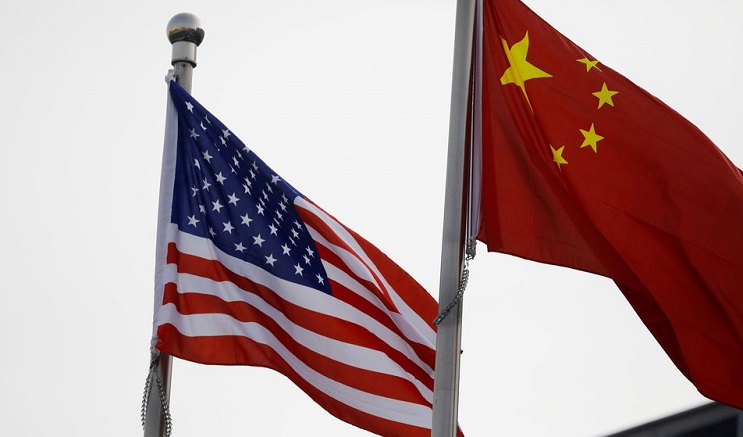Since the visit to Taiwan by US Speaker of the House of Representatives Nancy Pelosi on August 3, bilateral relations between Washington and Beijing continue to spiral downwards with no peace pipe to smoke within sight.
The one-China principle includes Taiwan as part of China and is recognised worldwide, including by the UN.
However, lately, the US appears to be making a mockery of this policy by aggressively courting the Taipei administration as a territory independent of mainland China.
The latest example is US President Joe Biden’s appeal to congress to approve more than US1 billion dollar worth of arms sales to Taiwan.
The move is certain to aggravate rapidly deteriorating diplomatic relations between the world’s two biggest economies.
Nearly a fortnight ago, China’s Foreign Ministry spokesperson Mao Ning launched a scathing attack on the US, accusing the US National Security Agency (NSA) of “cyber-attacks and data theft against China”.
Nowadays, security of the cyber space has become a common issue faced by all member-states of the international community. Its importance is particularly accentuated by the 21st century’s phenomenon that is globalization, coupled with technological development that has weaved together the universe into a single global village.
Cyber security advancements
Advanced designs for cyber security as well as sophisticated capacity-building and protection, plus cyberspace law enforcement have become every country’s pillar of insulation against internal and external threats to respective national security.
According to Ning, China’s charge against Washington stand supported by “a clear and complete chain of evidence, which involves 13 personnel in the US who directly launched cyber-attacks against China, and more than 60 contracts and more than 170 digital documents with US telecom operators to build an environment for cyber-attacks”.
The investigation and subsequent report was carried out and compiled by China’s National Computer Virus Emergency Response Centre (CVERC) together with cyber security company 360.
Mao Ning told a packed press conference that “the US used 41 specialised cyber weapons to launch cyber theft operations for over 1000 times against China’s North-western Polytechnical University and stole core technical data”.
Ning further claimed that the US has long carried out indiscriminate audio surveillance against Chinese cell-phone users, and “illegally stole text messages from them and conducted wireless positioning of them”.
Said Ning: “These developments once again show that safe-guarding national cybersecurity is extremely important. As a major victim of hacking attacks, China is firmly opposed to all forms of cyber-attacks. China’s laws clearly prohibit all cyber intrusions and damage of information systems,” Ning said.
Ning emphasised during China’s 2022 Cybersecurity Week a fortnight ago that Beijing’s foreign policy remain entrenched in the principle of multilateralism and international cooperation and relations.
“China adheres to peaceful use of cyberspace, and is ready to work with the international community to step up dialogue and cooperation, oppose hegemony in cyberspace, address all kinds of hacking attacks, maintain peace, security, openness and order in cyberspace, foster a multilateral, democratic and transparent international internet governance system, and work together for a community with a shared future in cyberspace,” Ning concluded.
A senior Chinese Foreign Ministry official, Zhao Lijian, echoes similar sentiments about deep mistrust between Beijing and Washington with regard to, among others, cybersecurity.
Zhao alleged that “the US is the world’s largest source of cyber-attacks”. He said information at Beijing’s disposal showed that the US Central Intelligence Agency (CIA), “carried out cyber infiltration and attacks on China for 11 years in key areas such as aerospace, science and research institutions, oil industry, large internet companies and government agencies”, said Zhao.
Victims of cyber-attacks world-wide invariably share one identical query – under-mining of their national security.
Such is the role of technology in today’s everyday life that lack of development in this field ostensibly implies sheer backwardness, and increased vulnerability as well as susceptibility to sophisticated untraceable attacks.
Basically, at the click of a mouse – a country’s entire economy can be collapsed by cyber attackers sitting across the oceans in one corner of the universe.
Social Sciences bear an interesting observation about the impact and effects of technological development within the framework of globalization. It particularly draws attention “the compression of time and space” brought about by impactful technological development globally.
In fact, a quick study of international studies warns of grave consequences for nations that lag behind technological development. It cites that prosperous nations with the capability to build on their knowledge economies has no desire to slow down in the interest of slow-moving nations stuck in the fast-turning into archaic socio-economic practices.
Simmering tensions
Simmering tensions between particularly developed and powerful states create the risk of a possible cyber arms race similar to the Cold War era.
This modern-day poser further poses a major threat to international peace and security that, I believe, could be averted by sincere and genuine commitment to multilateralism.
The US, for its part, argues that the country’s cyber activities are aimed at securing national security, instead of harming external competitors.
But the constant mistrust – driven by disharmonious and fiercely competing policy objectives – remain a probable trigger for, God forbid, a very different modern-day world war.
The ramping up of military cyber armies by the developed nations coupled with astronomical investments in cyber weapons are reaching scales never contemplated previously. The mantra appears to be “to dare is to do”, or “who dares wins”. Challenging times lie ahead. And the future looks bleak. Until, and unless, world leaders choose the path to a peaceful co-existence.






